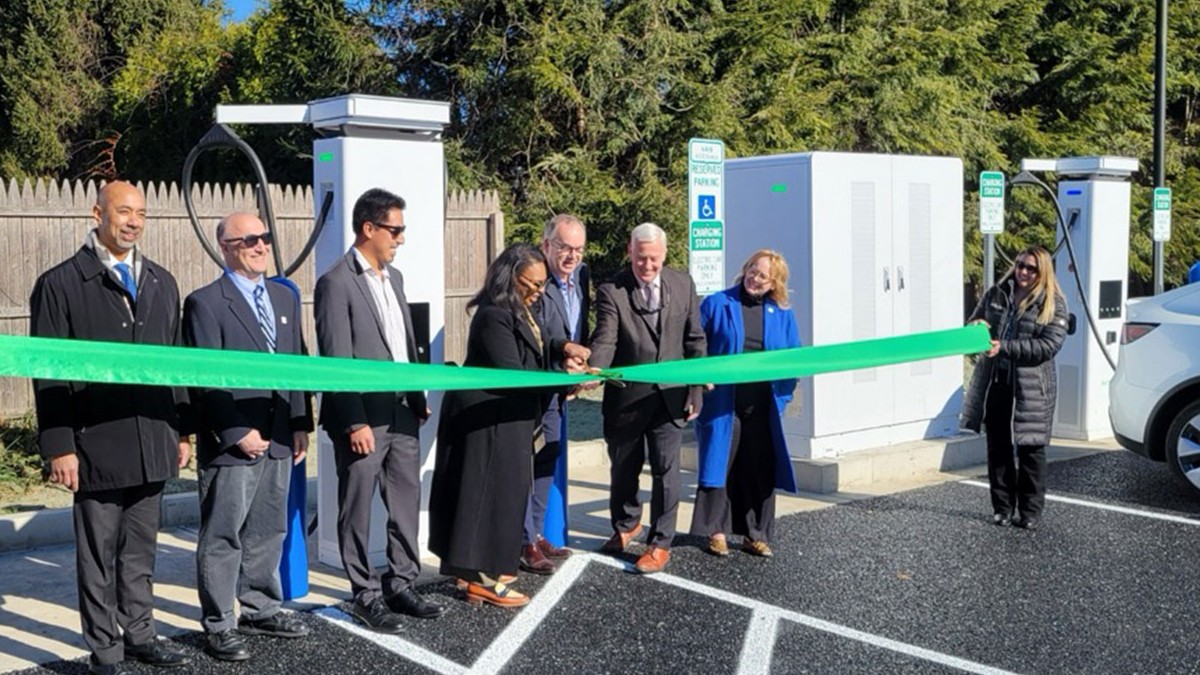
The first EV charging hub funded by the Charging and Fueling Infrastructure (CFI) Program in the Eastern US is now online in Deerfield, Massachusetts.
The town installed the region’s first DC fast chargers (four ports), along with four Level 2 chargers, at 59 North Main Street in South Deerfield.
These new charging stations, funded with $2.46 million from the CFI program, are conveniently located near Interstate 91 in Franklin County, the most rural county in Massachusetts, which serves drivers from Connecticut up to the Canadian border.
The hub also features local and regional bus stops and designated bike lanes with secure onsite bike racks. The chargers are meant to cater to everyone: from local residents and visitors to municipal EVs and commercial vehicles that service the region’s businesses, like those in food and beverage manufacturing.
Gabe Klein, executive director of the Joint Office of Energy and Transportation, sees this as a model for future projects:
Multi-modal charging hubs in communities are key to giving more people the choice to ride and drive electric. The Town of Deerfield is showing leadership in building out convenient charging infrastructure that brings new transportation choices to rural and disadvantaged communities while supporting local commerce.
In recent years, Deerfield has experienced increased climate change-driven flooding from nearby rivers, including the Deerfield River, the Connecticut River, and the Bloody Brook. The project incorporates environmental engineering designed to mitigate and adapt to the effects of flooding and climate, including the installation of permeable asphalt and rain gardens, planting of native trees, grasses, and shrubs, and the creation of new greenspace in the center of Deerfield.
The Biden-Harris administration’s CFI Grant Program is expanding EV infrastructure nationwide. It offers grants for projects that complement and expand upon the initiatives of the NEVI program in urban, rural, and disadvantaged and low-income communities. So far, the CFI Grant Program has allocated over $1 billion to nearly 100 projects across the US, encouraging private investments and expanding the EV charging network to make EV ownership more practical and convenient.

Read more: The US reaches milestone of 200,000+ public EV charging ports
If you live in an area that has frequent natural disaster events, and are interested in making your home more resilient to power outages, consider going solar and adding a battery storage system. To make sure you find a trusted, reliable solar installer near you that offers competitive pricing, check out EnergySage, a free service that makes it easy for you to go solar. They have hundreds of pre-vetted solar installers competing for your business, ensuring you get high quality solutions and save 20-30% compared to going it alone. Plus, it’s free to use and you won’t get sales calls until you select an installer and share your phone number with them.
Your personalized solar quotes are easy to compare online and you’ll get access to unbiased Energy Advisers to help you every step of the way. Get started here. –trusted affiliate link*
